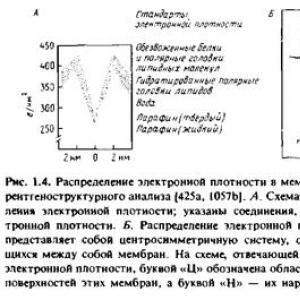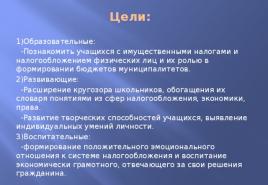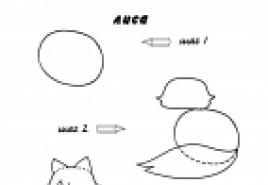Denial of chemical dependence is a form of exaggeration. Dependency Denial
Denial – psychological defense mechanism inherent in every person , helping the consciousness to “close” problems that it cannot accept or survive. Sigmund Freud was one of the first to describe in detail the nature of psychological denial.
 Often people's emotions are guided by instincts that originate in the deep past of humanity, which are now unacceptable from the point of view of law or morality. Therefore, we consciously do not want to identify and encourage the satisfaction of such impulses, since it is “impossible”, “not accepted”, etc., and the psychodynamic function of anxiety helps with this. Each of us has defense mechanisms activated when necessary. Freud called them a conscious strategy - a shelter from the direct expression of impulses.
Often people's emotions are guided by instincts that originate in the deep past of humanity, which are now unacceptable from the point of view of law or morality. Therefore, we consciously do not want to identify and encourage the satisfaction of such impulses, since it is “impossible”, “not accepted”, etc., and the psychodynamic function of anxiety helps with this. Each of us has defense mechanisms activated when necessary. Freud called them a conscious strategy - a shelter from the direct expression of impulses.
Thus, when unacceptable impulses arise, one of the reactions occurs:
- blocking their expression in conscious behavior, then the behavior remains socially and internally acceptable;
- their distortion or justification, which leads to partial or complete acceptance, and a visible decrease in the intensity of anxiety.
It turns out that this psychological defense mechanism is nothing more than a natural tool of self-deception, it can replace, distort or deny the perception of reality, thereby making the feeling of anxiety less threatening. Denial is most characteristic of young children (reluctance to believe in the loss or breakage of a toy, the death of a beloved animal), as well as adults experiencing tragedy (denial of the presence of a fatal diagnosis when confirmed by a physician) or people with a reduced level of intelligence (as a result of taking drugs or alcohol, and mental disorders). In the case of drug addicts, alcoholics and their loved ones, it manifests itself especially clearly.
How does denial work in an addict?
As you probably already know, drug addiction and alcoholism are varieties of the same disease - chemical dependence. Therefore, speaking about denial, we will not separate them; all its manifestations are characteristic of both these and other types of addiction.
When the use of alcohol and/or drugs turns from self-indulgence into a problem for a person, he does not want to notice or admit it for a long time. A person gets into trouble while drunk, loses his job, spends his last money on drugs, gets into debt, decides to commit criminal acts, but never admits that all this is because of his addiction.
The patient is in a cozy cocoon of illusions; he is afraid of the destruction of his artificially created house. Taking alcohol or drugs is perceived by him as a game, a fun hobby, and later as a means to escape from the “evil world.” Through alcohol or drugs it is easier for him to accept the world around him and communicate with people. A person remains in an elevated state until the moment when addiction begins to eat him up from the inside, leaving in place of his former joy, long binges, drug “marathons”, mental disorders and serious side diseases. And even here he denies the problem, since accepting it will bring unbearable pain to both him and his relatives. The patient does not want changes and, with the help of denial, “buries” his head in the sand, excluding the search for ways out to solve the problem. He does all this unconsciously, so throwing tantrums and especially proving his guilt is unproductive; this will only increase the desire to shut down and provoke new use.

Those close to the addict have only three options:
- come to terms with and continue to watch the degradation and death of a loved one;
- abruptly and for a long period of time break off relations with him;
- seriously insist on the need for treatment.
It is difficult to force a person to undergo treatment if you do not know where to start. In order to act correctly, it is important to understand the state of the addict - only then can you motivate him to begin the first steps towards recovery.
However, many relatives tend to downplay the problem of their loved one's addiction, because, like any other people, they are also characterized by denial and cannot accept the fact that their loved one is terminally ill.
How does denial work among relatives?
Relatives, like addicts, deny the fact of drug addiction or alcoholism of a loved one. Since recognition of this fact means:
- recognition that he has, firstly, a fatal disease;
- and secondly, the disease is very “indecent”.
Relatives, especially parents, often say that bad company, a grumpy and misunderstanding wife/husband, separation from a loved one or his loss are to blame for everything. If the person is young, parents usually add that the army/work will be able to fix him. Moreover, they say that if he comes to his senses, he can always quit, just like “Vasya”, “Petya”, “Ivan Mikhalych” quit. Thus, they unconsciously downplay the significance of the problem, since they do not want to blame themselves for improper upbringing, or drinking alcohol during their child’s childhood, during pregnancy and breastfeeding.
Parents can say that now many people drink alcohol and even occasionally smoke marijuana, this is all self-indulgence and will go away with age. They pay attention to addicts with more serious problems and calm down. Let us repeat, this is an unconscious defense of the psyche, which finds it very difficult to accept the very fact of a fatal illness of a loved one.

Many, protecting the patient from theft or preventing begging, supply him with money. Deep down, they understand that the patient will use the amount to his own detriment, for a new portion of alcohol or a dose of drugs, but they cannot help themselves and believe that this time he will definitely buy himself new shoes.
A fairly common situation is when an addict, for some reason, switches from drugs to alcohol, and his loved ones calm down, because they believe that alcohol is a lesser evil. But alcoholism, like drug addiction, is a chemical addiction, and practice shows that drinking drug addicts destroy themselves much faster with alcohol and eventually return to drugs.
Another situation is typical for relatives of alcoholics, when they are convinced that the patient should drink exclusively at home, and not “somewhere on the side.” Relatives, wanting to limit such consumption, offer to drink “a little bit” at home, hoping that if the patient stays at home “he won’t do anything wrong.” For the time being, this works, but then the patient becomes uncontrollable, so by making such proposals, relatives only develop the problem.
Often loved ones cover for the patient. For example, when an addict's boss calls and asks the reason for his absence from work, they lie that the person is seriously ill or has gone to urgent matters. Thus, relatives cover for the addict, preventing him from feeling responsible. They pay off his debts, knowing deep down that this is unacceptable, thereby provoking the patient to take out new loans. All addicts are manipulators. The patient may beg, threaten, or exert emotional pressure to get what he wants. Relatives often fall for their tricks; they believe that this will keep their family secret.
You need to understand that the situation itself will not be resolved, because not a single disease goes away without treatment. Moreover, every day addiction will consume a person more and more. An integrated approach will help you achieve a sober life, and not just cleansing the body with a drip. When systematically taking mind-altering chemicals, psychophysical dependence is formed. Inaction towards her sometimes costs life.
In conclusion, we repeat that denial of dependence is a natural psychological stage. But being stuck for a long time in the phase of ignoring the disease is disastrous for the patient and his loved ones. Addiction can develop at the speed of a wind-driven fire. And every month it becomes more and more difficult to snatch a person from her tenacious clutches. Overcoming addiction must begin with a comprehensive discussion of the treatment and recovery process with specialists, otherwise the result can be disastrous. Remember - if you strip the official death statistics, 98% of deaths in young and middle age are associated with alcohol or drug use.
An addict has four options - start treatment, become disabled, go to prison or say goodbye to life, but in order to choose the right one, both he and you need to look at the situation boldly and soberly, only he is probably not sober again...
"VERSIO" is a hope that comes true
Drug addiction treatment
Removing withdrawal symptoms
from 6500 rub.
Coding for drug addiction
from 13000 rub.
Calling a doctor to your home
from 5000 rub.
“All our troubles come from the fact that we do not want to grow up,” said the Teacher. “How do we know when we have grown up?” - asked the student. "When we no longer need to be lied to."
The fact that we are in treatment and on our way to recovery means that we no longer need or want to lie to ourselves. Denial is our escape from reality, our fantasy. This is a lie to ourselves. Everything is fine and we have the situation under control. Denial prevents us from seeing the truth. In fact, when we can realize the truth, we can change and become different.
Many of us feel that our illness has its own face and voice. Each of us has many aspects to our personality. For example, most of us behave differently at work than we do with our parents or children, or on a date with our crush, or in class. We sincerely teach our children never to lie, and then we ourselves deceive our boss, the IRS, our own mother - as if several personalities coexist in our minds at the same time. The disease also has its own life and its own voice. To continue to “live,” she invents her own story and tells it to us. Essentially, it tells us what we have. It's okay that we are not sick and can continue to drink. These lies we hear are our denial.
To recover from chemical addiction, we need to know how our illness deceives us and how we are deceiving ourselves. We bring to light the truth so that we can fix our broken lives. At 12 Steps meetings we will often hear people talk about what “their illness is saying”: “My illness wants me to go to my drinking friend, my illness thinks that one can of beer will not harm me.” These people are aware of their denial and the mechanism of its action.
Denial is a defense mechanism. This is a protection system. It prevents us from feeling the painful and unpleasant truth about both our own powerlessness and the consequences and uncontrollability of our addiction. If we cannot recognize or understand these consequences, then everything is fine and our disease can live and thrive.
Denial comes in many forms. It is not limited to people suffering from chemical dependency. All people experience denial about something - their relationships, their behavior, their family, etc. We all want everything to be “okay”. Denial protects us from pain.
For us chemically dependent people, maintaining our denial is tantamount to death. These are the very reasons we cause pain to the people around us. We also deny this. To recover, we need to acknowledge our denial and understand how it works so we can loosen the stranglehold of our illness. Denial is replaced by truth and awareness.
To live in denial is to experience resentment, fear, shame and loneliness. Instead of living in eternal cold and isolation from ourselves and others, we can warm up again and begin to live.
Defensive Strategies- these are specific ways of manifesting denial. We use some defensive strategies quite consciously. Others - unconsciously. Both of them serve us to deny.
Listed below are common types of psychological self-defense or forms of denial. We resort to all forms of denial, although we use some more often than others.
1. Simple denial— Simple denial of chemical dependence. For example: “You are an alcoholic.” "No, I'm not an alcoholic."
2. Understatement— The desire to downplay the degree of one’s chemical dependence. For example: “Yes, I drink, but not much.” “I didn’t get that drunk during the feast.”
3. Justifications- Logical explanations for drinking or drug use. For example: “I have trouble falling asleep, so I drink.” “I need it for back pain.” “I had a bad day today.”
4. Accusation- Drinking due to external conditions that “forced” it to happen. The responsibility lies with someone or something else, not with us. For example: “If my wife treated me better, I wouldn’t have to drink.” “I was fired from my job, and that’s why I started drinking.”
5. Trade- transactions. For example: “I will stop drinking if you stop smoking.” “I’ll stop drinking when it’s calmer at work.”
6. Generalizations, philosophy- providing a general and non-specific theoretical basis for drinking. For example: “I come from a family of alcoholics, so my genes are abnormal.” “I had such an unhappy childhood that now I try to overcome subconscious feelings in this way.”
7. Going off topic- changing the topic of conversation. For example: “Well, yes, I got drunk last night, so what are we having for dinner?” “You don’t like what I drink? And I don’t like that you’re so fat!”
8. Passivity- ignoring the problem or playing the victim. For example: “I tried to quit, but this habit is stronger than me.” "I can not do anything." "If I only had willpower..."
9. Hostility- using threats to get others to stop discussing an issue. For example: “Am I disgusting to you in bed, drunk? Great, we won’t have sex anymore.” "Get off me!" “Do you like that I bring home my paycheck?”
- Why are you drinking?
- To forget...
- Forget what?
- I'm ashamed...
- Why are you ashamed?
- Because I drink...
Antoine de Saint-Exupery
Denial is one of the effective forms of protection from feelings and facts that are uncomfortable for a person, the manifestation of which is expressed in shame. It is no secret that everyone who experiences shame is in a fairly strong affective (explosive, emotional) state that threatens self-esteem. Therefore, intolerance to such a painful state on a conscious level prompts a person to defend himself.
In addition to the fact that, in addition to denial, there are at least five other forms of manifestation of psychological defense: withdrawal, arrogance, aggression, perfectionism and shamelessness, it is with the help of denial that, most often, dependent and codependent people try to protect themselves from feelings of shame and, moreover, minimize awareness of existing problems in the family.
The root of denial is self-deception, the extreme degree of which consists in repressing the conscious thought of what is happening and all the feelings associated with it. Thus, people repress from their consciousness any painful experiences that may threaten them with the loss of themselves as individuals.
Closely related to denial is the process of minimization or, in other words, minimization. People are able to minimize the significance of what happened when they consciously understand the fact of its reality, but do not want to recognize the physical or emotional extent of the significance of the consequences. An example here is an alcoholic who is willing to admit that he drinks too much and yet refuses to realize how much it is harming him and his loved ones. Consequently, in order not to feel shame and not to take responsibility for the consequences of his behavior, the alcoholic seems to be trying to distance himself from people close to him, defending himself by not accepting the real situation. And it is precisely this detachment from reality - denial and minimization - that prevents addicts from recognizing their condition as a problem - an illness that requires treatment.
There are few people who could easily face the looming threat of losing their personality, which mainly happens in stages (alcohol, drugs, etc.) Therefore, dependent people choose denial as a form of protecting their personality from external factors, judgments, labels and other consequences of addictive behavior.
For example, the label “alcoholic,” once assigned to an addicted person by his environment, becomes paramount in the acceptance of this person as an individual, and only after it, on a secondary level, does society consider other aspects of his personality—as a family man, a hard worker, or a public figure. Therefore, by denying his alcoholism, the addict will try in every possible way to protect himself from peculiar behavior that causes a feeling of shame, and to distance himself from public judgments with his collapsing personality. Alcoholics, drug addicts or other addicts are protected in a similar way in cases where the threat of exposure hangs over their family.
But no matter how skillful self-deception may be, one should always remember that the feeling of shame tends to return, and it can be no less in its degree than at the initial stage. This means that you need to decide for yourself, either continue to live in denial of reality, or start
Formation of protective mechanisms in use
Feeling, thought, action, consequences, analysis (conclusions).
Example:
Event
Troubles at home, at work, girlfriend/boyfriend dumped, etc.
Feeling
Pain, anger, resentment, anger, self-pity.
Thought
It’s very painful, very bad, it’s impossible to survive this feeling.
Action
Consequences
Conclusion:
When a person goes through this scheme several times, he develops the habit of suppressing feelings with psychoactive substances (PAS), and subsequently forms an addiction (you know that a person starts using PAS for two reasons: psychological and social, and becomes addicted for physical reasons).
Example:
Event
Chemical dependence (use of surfactants and everything that accompanies use).
Feeling
Pain and fear.
Thought
It’s very painful, very bad, you need to take something.
Action
Use of surfactants (alcohol, drugs).
Consequences
Fine! I don't feel pain anymore!
Conclusion:
You need to use surfactants to feel good.
NEGATION!
Denial (self-deception) is a way to protect yourself from pain and fear of events that you are not ready to accept.
Denial is difficult to recognize because... it plays two roles:
good- protects you from facts and feelings that you are not ready to accept. The pain of the truth can be impossible to bear (the death of a loved one). Denial is the protector that allows you to exist day after day.
Bad― does not allow you to clearly see the harm that drug addiction brings to you and your loved ones.
Denial is also characteristic of other chronic diseases:
Cancer patients often hope for a miracle: “Something will happen that will help me.”
People with heart disease ignore warnings and neglect exercise and diet. Diabetics do not want to accept a new lifestyle that gives them the opportunity to not suffer. An elderly man after a major operation: “I’ll prove to everyone that I’m healthy by going to smoke.”
Denial - defending your use
Beginning drug addicts deny problems with drugs, because... I’ll have to say that I’m a drug addict (mental hospital, bars on the windows, “I’m not a drug addict.”). “Old” is an opportunity to help.
Facts about denial
Negation:
- Impairs the ability to think clearly.
- This is a disease syndrome.
- It distorts the truth (they listened to “biochemistry” - they believed it, time passed - it’s all nonsense).
- It gets stronger as the disease progresses.
- Cannot be overcome until use is stopped.
- It leads to the fact that a person does not believe that he is sick and needs to be treated (bad habit - I can quit whenever I want).
- This is the part of the disease that tells you that you are not sick.
Denial very easily finds support from friends and family - mom wants to believe that you don’t have big problems: “And if she thinks so, then why should I worry?” Or wants to support you so that you change your behavior. Considers it less painful to come to terms with erroneous actions or forget them, but not to make demands and claims.
Denial is a codependency syndrome, and it is more difficult to recognize.
A lot has been written and said about drug addiction, and indeed, not everything may be relevant to you, because... All drug addicts differ in the degree of neglect of the disease and the rate of recovery. Denial forces you to focus on differences (even if they are just funny) rather than on what unites you.
Fighting denial
The fight is very difficult, because... The defense system can only be destroyed from the inside; this is simply impossible to do from the outside. Denial retreats with recognition of its denial (active position). You admit or admit (that's enough) your denial, and then recovery is possible.
The disease is chronic and progressive, because denial returns as soon as you stop working on your recovery: you feel like you are feeling much better; reluctance to go to meetings or to see a specialist, where everything is focused on recovery; avoiding the fact that the main thing is sobriety; thoughts that you don’t need anyone (I can handle it myself); and, as a result, the thought that a little bit is possible.
FORMS OF DENIAL
Denial is a belief system that protects your Self from negative emotions.
1. Self-will- contempt or resistance to any ideas that do not agree with our own.
Open, active self-will - expressed openly, aggressively, usually with the use of force: “Just try to forbid me to drink beer with my friends, you’ll see what will happen!” (Usually in a family - it’s not scary there).
Passive self-will - hostility is expressed indirectly: gossip, allegories, distortion, criticism.
In a chemically dependent person, denial works according to the conflict model.
2. Minimization- reducing your problems. “I only use it on special occasions.” “I only drank a couple of shots,” (and a shot glass is a glass).
3. Intellectualization. (K. Castaneda.)
4. Rationalization is the justification of one’s use.“I use it because... I have a hard time coping with problems.”
5. Moralization.“Our system is not fair, a person with morality cannot look at this...”
6. Projection- transferring your problems to the problems of others. “Everyone drinks, some even more than me.”
7.Selective (elective) memory.“I remember here, not here.”
8. Justification.“A couple of glasses a day - doctors recommend...” (from the film “The Diamond Arm”).
9.Accusation.“It’s my wife’s fault, if she hadn’t left, I wouldn’t have started again.”
10. Agreement.“Yes, you’re right, it’s time for me to stop using heroin.”
11. Reasoning.
12.Explanation. Usually the addict himself starts.
13. Runaround.
14. Questioning.“When will you stop?!”
15. Denial (direct).“I don’t have any problems!”
16.Playfulness.
17. Nagging.
18. Verbosity.
19. Sullenness.
20. Funny.“I can quit whenever I want.”
21. Dropping.“Yes, Seryoga has problems with heroin, he needs treatment. It’s good that it’s not like that with me.” (Not like that - much worse.)
Denial - belief is expressed in actions, resistance to treatment - sabotage.
Procrastination is putting off tasks until the last minute.
Inaction - listened, agreed, did nothing.
Reluctance (inability) to complete written assignments. "For what? I remember everything, understand, etc.”
Silencing severe episodes of use.
Touchiness. Resentment towards someone you work with.
A story about your use in a “telegraph style”, as if not about yourself.
Theorizing. (Many words - few actions.)
Irritability.
Indiscipline.
The desire to appear better than one is (did not ask a question; did not say that he disagreed.)
These are just a few options, everyone has their own defense.
Another form of denial- a bet on one’s own individuality. “Yes, indeed, everything is correct and good, but I’m not like that (not everything that they talk about happened to me, “I” is a separate person).”
Denying addiction and understanding the negative essence of one’s reality causes pain to a person. It is very difficult to accept the idea of having an alcohol or drug addiction. This is supported by a logical explanation and justification for reluctance admit the truth about the existence of the disease.
Such pathological denial of alcohol dependence on drugs and alcohol can last for years and lead to the complete destruction of the human body and his personality. Thinking about the sad consequences of alcohol and drug use, patients tend to blame any other reasons for their failures and troubles. Painful denial occurs on an unconscious level infected with a disease of the mind. A person addicted to drugs and alcohol does not record obvious things, consoling himself with the fact that he can stop at any moment.
Close people, the family of the patient, cannot calmly wait for a loved one who denies drug or alcohol addiction to die from harmful influences. The necessary help from the 12ST center in such cases will be salvation and good treatment, despite the resistance of dependent patients. The center's psychologists help addicted patients find and eliminate the cause, give motivation for a healthy life, stimulate increased self-esteem and a positive outlook on life.
Denial of alcohol addiction
Denial of illness is a kind of psychological defense mechanism. The patient tries in this way to prove to himself and others that everything is not so bad and normal. But the sad reality sometimes becomes clear too late, and has the following examples:
- I know my norm, I don’t have a hangover;
- This doesn’t interfere with my life at all;
- Alcohol is beneficial in moderation;
- beer cannot be a trigger for binge drinking;
- This is a harmless way to relax after work;
- there is a good reason to drink;
- if I want, I’ll stop drinking right away, etc.
It becomes clear that such a perception of the disease is one of main symptoms of alcoholism. Denial of alcoholism is characteristic at all stages and stages of the disease. This condition has the medical term anosognosia. It progresses along with the course of the disease, acquiring more and more sophisticated forms, trying to look for causes everywhere, but not in the bottle.
Denial of drug addiction
Denial of drug addiction is often based on patients’ confidence in their ability to independently and easily give up drug use at will. But this is self-deception, leading to the abyss. This psychological defense mechanism leads to a deterioration and aggravation of the situation, from which only decisive measures with the participation of professional narcologists can save. It is impossible to overcome addiction to opioid drugs such as heroin, sleeping pills and others on your own.
Specialists of the NC “12ST”, in addition to conducting medicinal cleansing and therapy I provide psychological assistance. Attempts to get rid of drugs on your own lead to a desire for the “last dose”, which lasts endlessly and aggravates the situation. Only under the guidance of experienced doctors can the process of getting rid of drugs be real.







